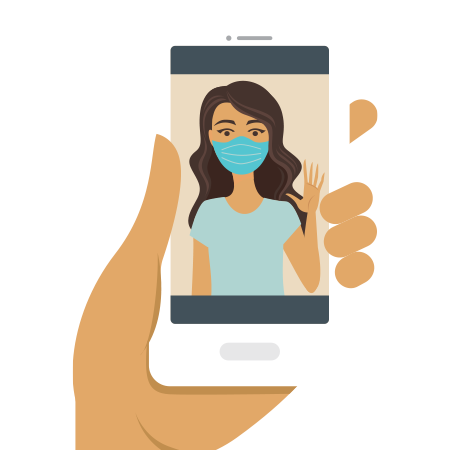
COVID-19 Alert
The COVID-19 Shelter at Home Order allows for individuals to seek medical assistance. Opioid Use Disorder (OUD) and Stimulant Use Disorder can be a life or death matter and you can seek help safely now.
Here are a few best practices when seeking help:
- Contact your health care provider via phone or online first.
- Ask your health care provider about the process and protocol to prepare you to safely get help.
- If you are currently experiencing flu-like symptoms, please inform your doctor, a nurse hotline, or an urgent care center immediately.
- If you need to go to the hospital, call ahead so they can prepare for your arrival.
- If you need to call 911, tell the 911 operator the exact symptoms you are experiencing so the ambulance provider can prepare to treat you safely.
Check out cdph.ca.gov for more information about the coronavirus.
Sheltering in place, does not mean you are alone. There are resources to help.
Should Coronavirus prevent you from getting help?
Governor Newsom ordered all residents to shelter in place to help flatten the curve of COVID-19. You might think that you should postpone or cancel getting help for your OUD or Stimulant Use Disorder until the crisis subsides; however, there are safe ways to get help now.
If you are struggling with addiction, you can still get help. Taking immediate steps to overcome addiction could make the difference between life and death. Please contact a dedicated treatment specialist today to learn more about your options and get answers to your questions about recovery.
What to know about Tele-Health
Tele-health is the distribution of health-related services and information via electronic information and telecommunication technologies such as the telephone, live video, audio, messaging, and other digital tools. It allows long-distance patient and clinician contact, care, advice, reminders, education, intervention, monitoring, and remote admissions.
Tele-health continues to deliver value in fighting the COVID-19 pandemic by allowing physicians to see patients safely and limit the spread of the virus. Healthcare providers are rapidly pivoting to tele-health more and more during the pandemic.
Tele-health is not recommended for all treatments. Please ask the healthcare professional if tele-health is an option for you.
COVID-19 and Drug Use
Individuals most vulnerable to coronavirus are those with low immune systems, especially people with a nicotine addiction, since COVID-19 is a respiratory disease that impairs breathing, so smoking may increase the risk of coronavirus complications.
The use of opioids (such as prescription pills, Fentanyl and heroin) and stimulants (such as cocaine, amphetamines, and meth) can also put you at risk if you are infected by coronavirus. Studies have shown that drugs not only alter neuropsychological and pathophysiological responses, but immune functions as well. Social practices connected with drug use, such as sharing contaminated needles, increases exposure to infectious pathogens such as COVID-19.